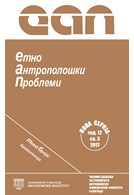Ecocriticism and Anthropocentrism in Yann Martel’s Life of Pi
Ecocriticism and Anthropocentrism in Yann Martel’s Life of Pi
Author(s): Biljana R. Vlašković IlićSubject(s): Cultural Anthropology / Ethnology, Theory of Literature
Published by: Филозофски факултет, Универзитет у Београду
Keywords: Yann Martel; Life of Pi; eco criticism; anthropocentrism; religion; fiction
Summary/Abstract: Yann Martel’s novel Life of Pi, the winner of numerous prestigious awards, was described as “very bold and extreme with a wonderful central idea” (Irish Examiner 2002). The “central idea” of the novel has been described differently by readers and literary critics around the world. For many, it is Pi’s relationship with the tiger, Richard Parker; for some, it is the decentering of humans in favour of animals; and yet for others, the central idea of Life of Pi lies in Martel’s unusual treatment of religions and their role in human life. In this paper we argue that that the main idea of the novel is Martel’s ecocriticism of humanity in general, and especially the tendency of humans to put themselves at the center of any story, whether about animals or gods. Martel creates a tangled web of many different stories which define Pi’s life in order to prioritize the role of fiction in the development of human personality and dissect the relations between the human, the natural world, and the text. Although he favors the animal story, the final chapter reveals that the only story humans find “real” is the one in which animals are seen as anthropomorphic.
Journal: Етноантрополошки проблеми
- Issue Year: 12/2017
- Issue No: 3
- Page Range: 883-903
- Page Count: 21
- Language: English

